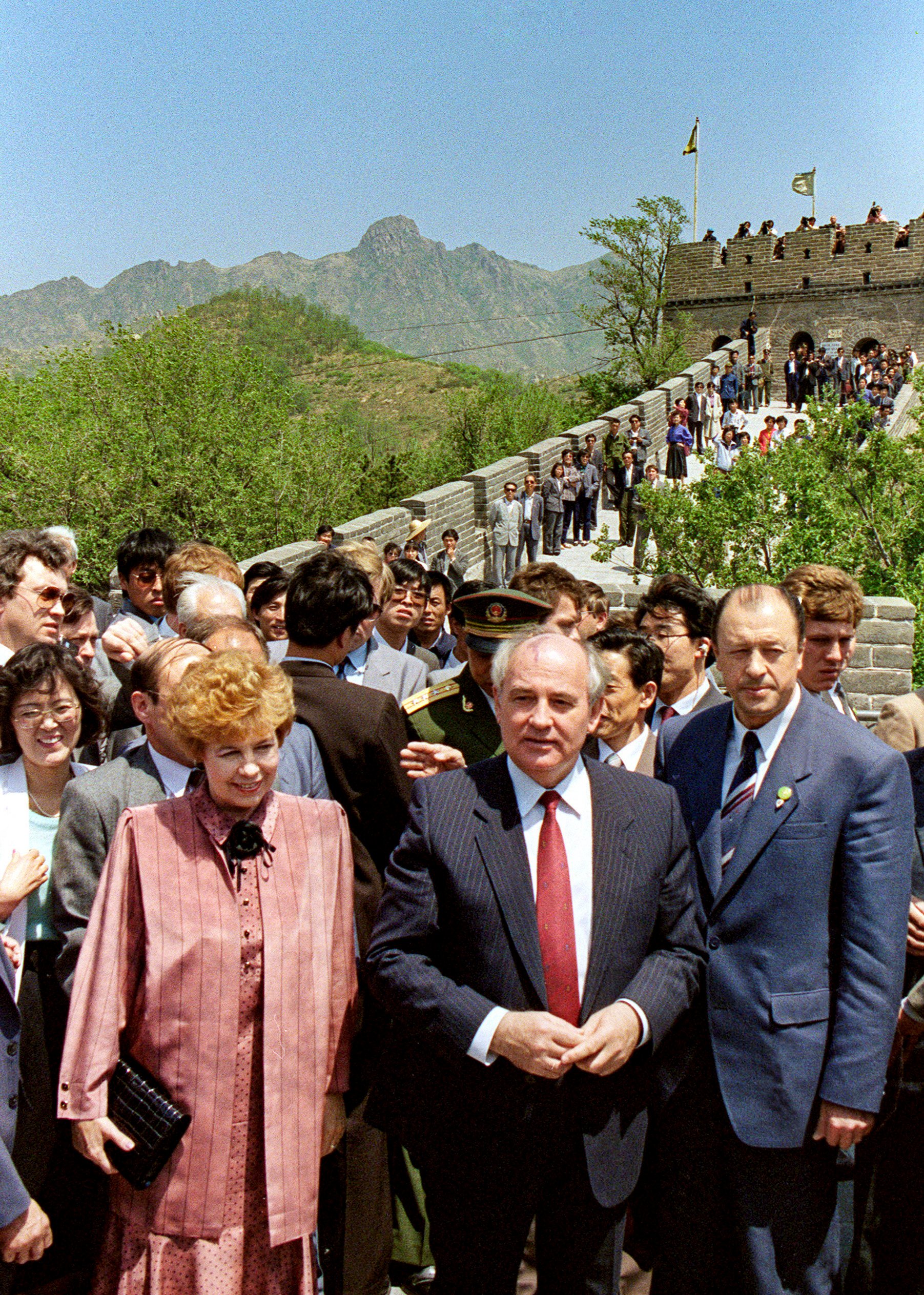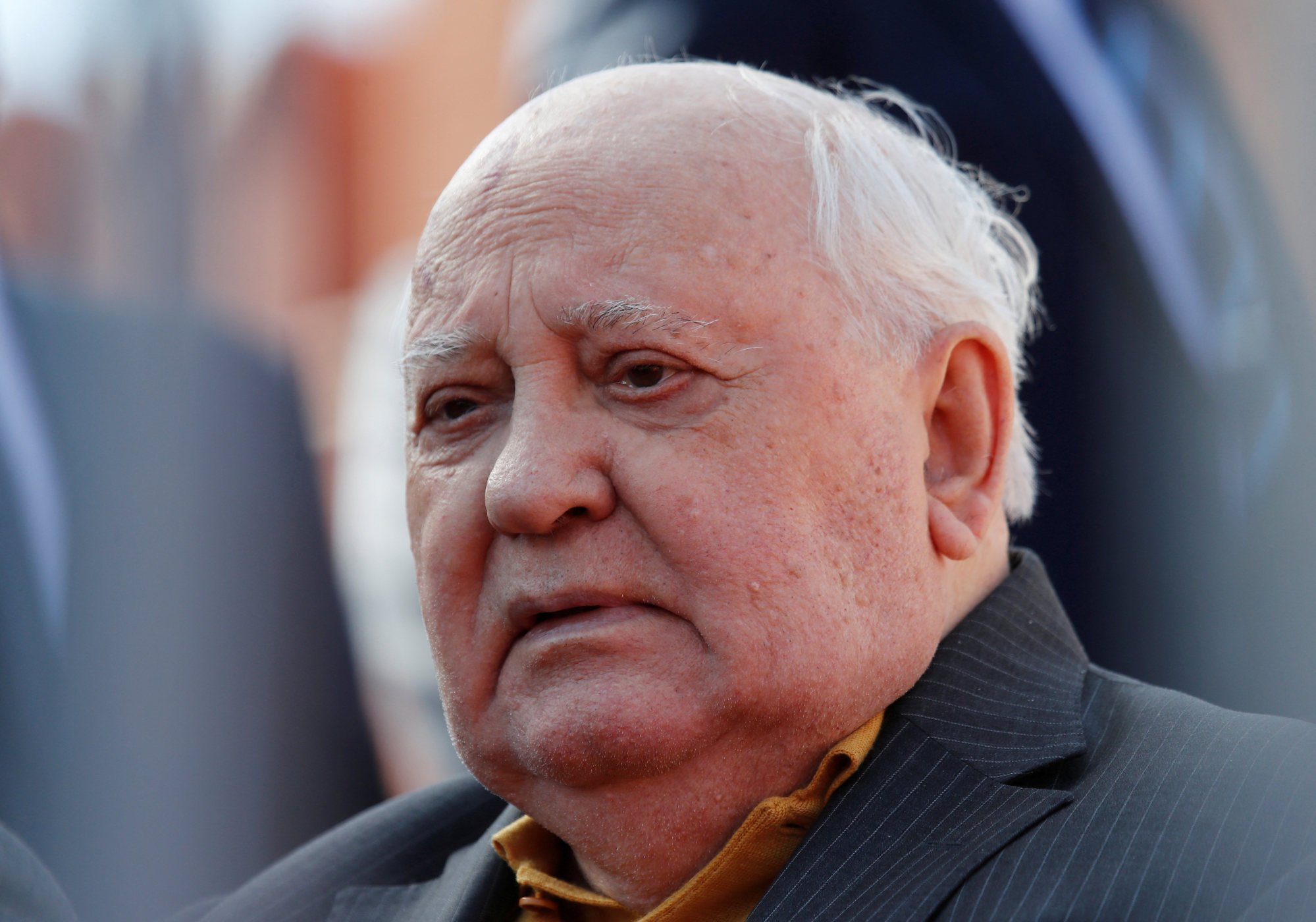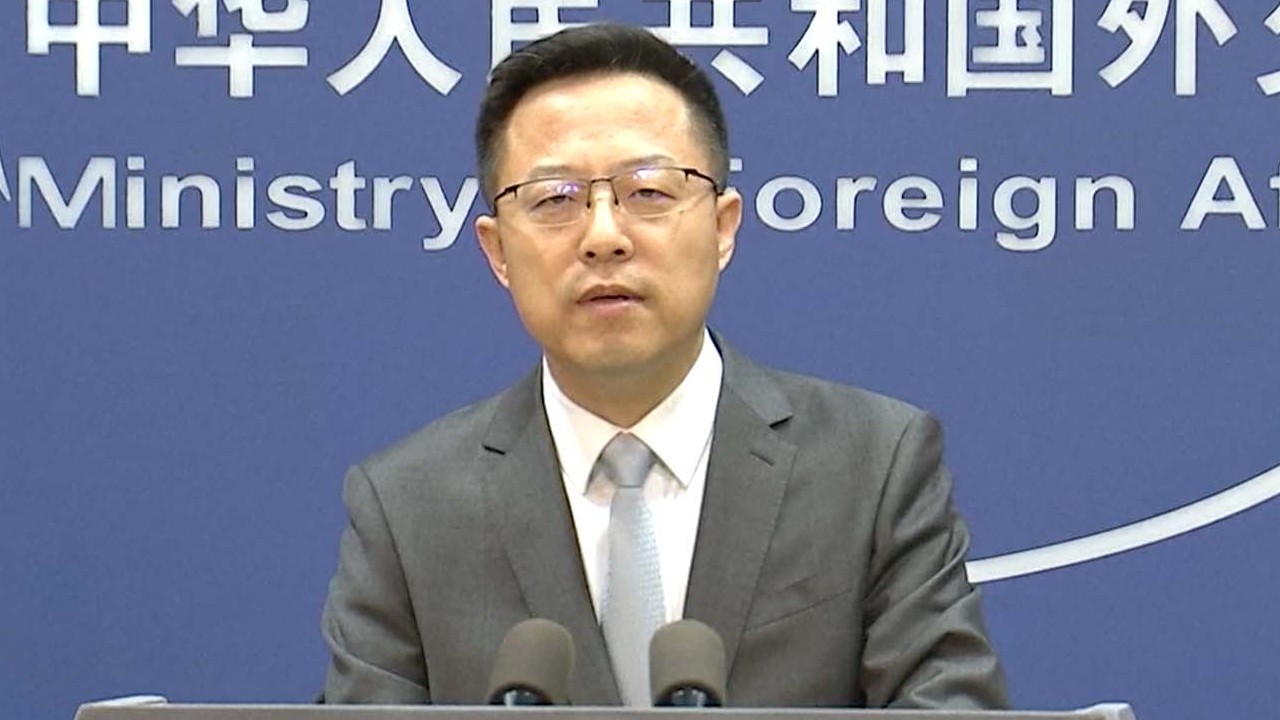
China offers tributes to late Soviet leader Mikhail Gorbachev for fostering Beijing-Moscow ties
- But the collapse of the USSR was a wake-up call for the Chinese communist leadership, according to analysts
- Low-key state media coverage of Gorbachev’s death shows that China has moved on, analyst says
“Mr Gorbachev made positive contributions to the normalisation of China-Soviet Union relations,” foreign ministry spokesman Zhao Lijian said.
“We mourn his death and express our condolences to his family.”
The leader of the former Soviet Union died in Moscow on Tuesday aged 91.
News of Gorbachev’s death was widely reported by Chinese state media, with most outlets citing the ministry’s statement, and some also repeating previous reports of how the Soviet Union collapsed under his watch.
They said China’s answer to avoiding a Soviet-style failure was to strengthen the party’s apparatus, adhere to Marxist-Leninist principles and resist Western ideology.
In China, Gorbachev is also keenly remembered for ending three decades of hostility between the two neighbours.
China and the Soviet Union had been in a bitter feud over ideology and geopolitics since the death of Joseph Stalin, with Moscow deploying a million troops along the Soviet-Chinese border. Chinese leaders, including Deng Xiaoping, considered the USSR a greater threat to China than the United States.
Gorbachev sought to normalise the ties and reduce the tension and his overture was warmly received by Beijing, culminating in his historic visit to China in 1989, amid the tragic student protest movement.
Before going in the opposite direction to Gorbachev, China’s Communist Party studied him for relevant experience.
A mainland-based professor of political science said that in the 1980s there was consensus between the communist parties in China and the Soviet Union that the old system had failed and new leaders were needed to drive reform.
“[But] a tipping point was the crackdown on Tiananmen Square on June 4,” said the professor, who declined to be named.
“After 1989, only economic restructuring got the go-ahead [in China] as the party was convinced that political reform would endanger its grip on power.”

He said Deng was shaken by the 1989 student and worker demonstrations in Beijing, which were partly triggered by Gorbachev’s visit to Beijing, leading the party to harden its views on political liberalisation.
Political conservatism has intensified in China in recent decades, with the country steering increasingly to the left and giving priority to ensuring the security of the ruling party’s regime.
In the West, there was a long-held hope that the world would see the emergence of China’s Gorbachev, but President Xi Jinping’s approach has been to centralise power and shore up loyalty to the party.
“Xi Jinping has stressed the significance of securing the party, even to the point of sacrificing economic growth,” the mainland professor said.
Gorbachev says US grew ‘arrogant’ after Soviet Union collapsed
Gorbachev became the general secretary of the Soviet Union’s communist party in 1985, launching a series of reforms to promote political transparency and more public discussion.
He stepped down as leader in December 1991 when the Soviet Union was dissolved.
He was awarded the 1990 Nobel Peace Prize and credited with defusing US-Soviet nuclear tensions in the 1980s and helping bring down the iron curtain across Eastern Europe.
At home, however, Gorbachev was loathed by many Russians who saw the union’s collapse as a tragedy, ushering a decade of mass poverty and the loss of the country’s superpower status.
“Gorbachev’s reforms made Russia more politically open and free than it had ever been before but they also caused economic chaos,” Mitter said.
The disintegration remains a chilling reminder for Chinese state leaders. In 2013, officials from across the country were summoned to watch the four-part documentary, “In Memory of the Collapse of the Communist Party and the Soviet Union”.
In the series, the collapse was blamed on Gorbachev’s radical moves to introduce Western-style democratic reform and relax the party’s monopoly control of ideology.
A rush by his successor Boris Yeltsin to privatise state-owned enterprises was also cited as a big contributing factor.

According to a summary of internal remarks circulated among officials, Xi said in 2013 that the underlying reason for the collapse was the central authority’s loss of power and drift away from socialist ideology. Xi also reportedly said that he thought that a “real man” would have saved the Soviet Union’s Communist Party in the 1980s.
“Since coming to power, [Xi’s] strategy has been the opposite of Gorbachev’s as he tightened political control and became more cautious about economic liberalisation. Both sides of Xi’s strategy can be seen as a reaction to the fall of the USSR under Gorbachev,” Mitter said.
Alfred Wu, an associate professor at the Lee Kuan Yew School of Public Policy at the National University of Singapore, also noted that China’s Communist Party had shifted its focus to maintaining its legitimacy and was silent on political reform.
“President Xi Jinping believes China can compete with the United States and does not need to learn from the US and Western powers, nor does the party feel the need to revisit the fatal mistakes made by the Soviet Union,” he said.
Xie Maosong, a senior researcher at the National Institute of Strategic Studies at Tsinghua University, said the relatively low-key coverage of Gorbachev’s death in China showed how far the country had moved on and away from the former Soviet leader.
“He was seen as a hero by the West but not by China. He was the past tense. Now that China has achieved success, there is no point discussing him,” Xie said.



